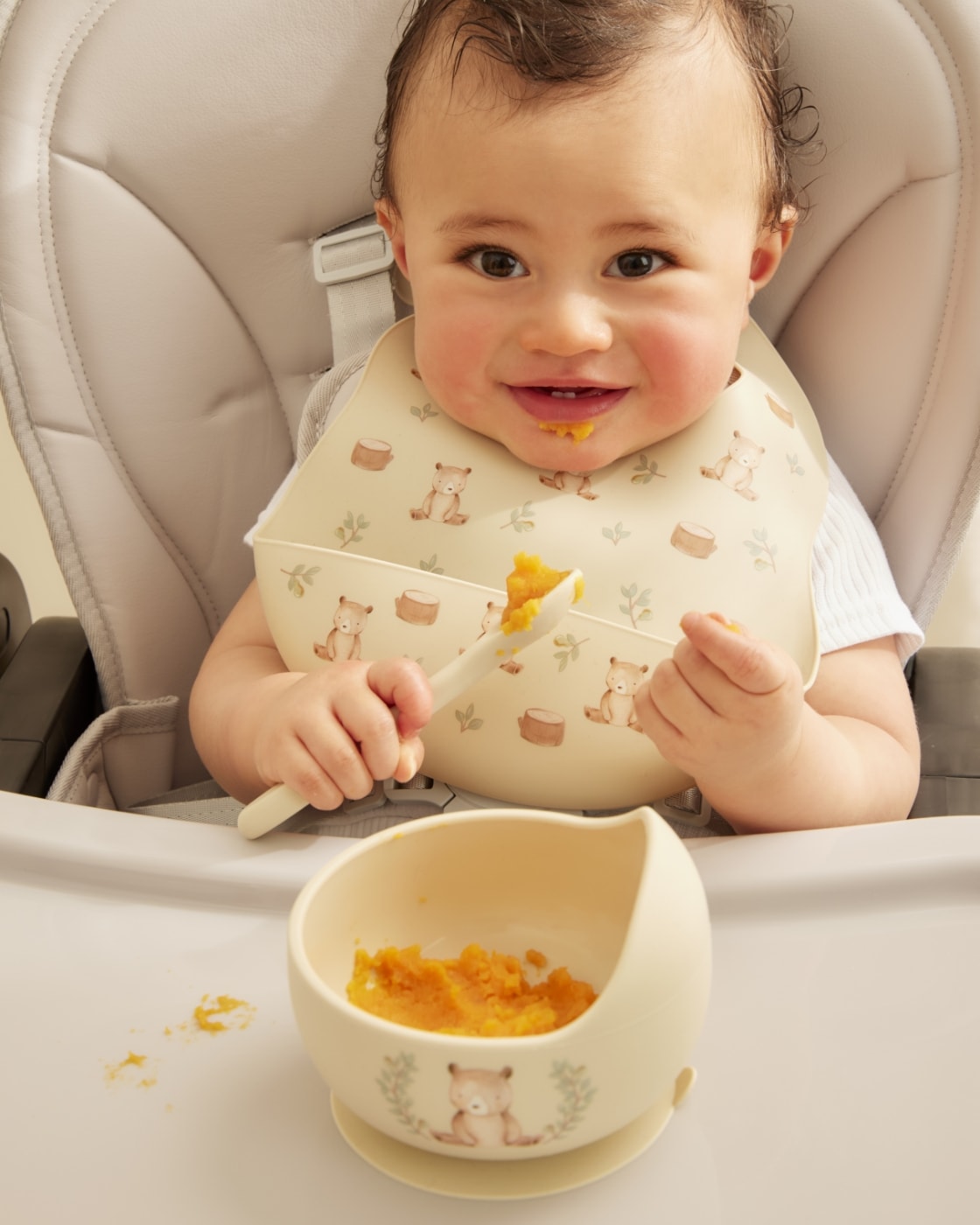
From 7 to 8 months your baby may be ready for mashed food, finger foods, and new flavours. Process the food for a shorter time or mash solid foods with a fork or masher. Most babies can now try a variety of new foods with more texture.
Between 8 to 12 months your baby may be ready for more textures and lumpy foods, and can now enjoy a wide variety of foods, flavours, and textures. By this stage, your baby will probably have between 3-4 meals a day, with 1-2 snacks.
From 12 months, your baby can eat many of the same foods as the rest of the family, although some foods will need to be cut up to smaller bite-size pieces. Cow milk or toddler milk can be introduced at this stage.
For information and advice on starting solids, please consult with your Well Child Provider or GP. For food types and recipes, please visit plunket.org.nz
Some parents prefer to make home-made food for their baby. This can be a cost-effective alternative to store-bought food and nutritious meals can be easily prepared then frozen in containers or squeeze pouches for future use. A food processor or stick mixer can make preparation, blending and pureeing much easier. There are also specialised all-in-one steamers and blenders that enable you to prepare tasty homemade meals for your baby, quickly and easily.
Note: Food safety is very important. Take care when buying, preparing, cooking and storing food.
When you first start feeding your baby solids, a soft spoon is recommended. Some babies adapt quickly to a spoon, others may take a little longer. Your baby will have a great time playing with their food and experiencing the new flavours and textures. Spoons, plates, bowls and cups will often end up on the floor, so durable melamine, silicone and BPA-free plastic is recommended. Meal times can get very messy so it's a good idea to put paper or a plastic mat down under their highchair to contain the mess.